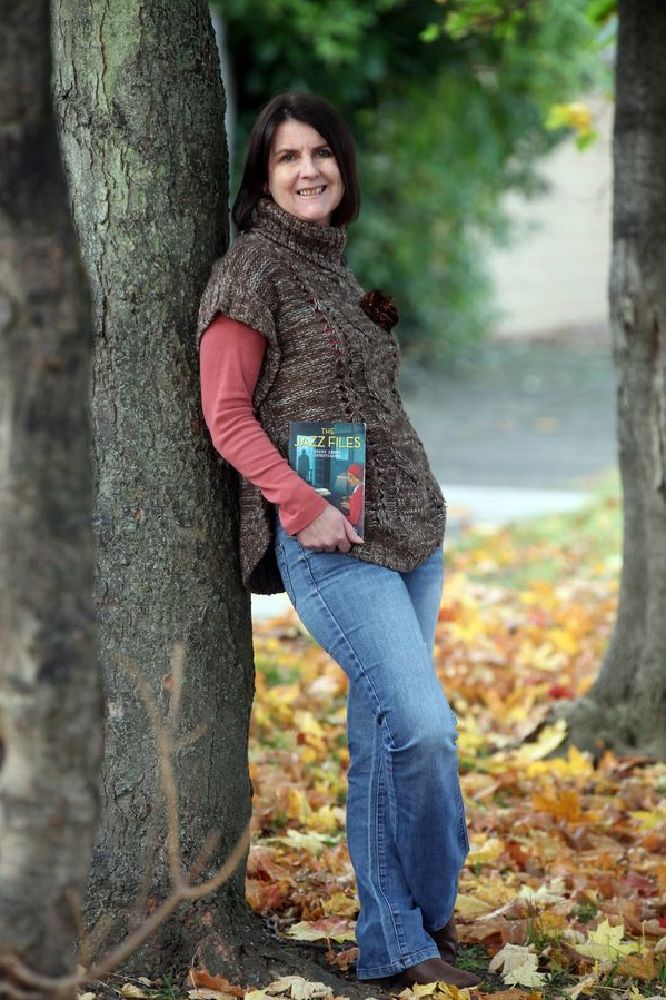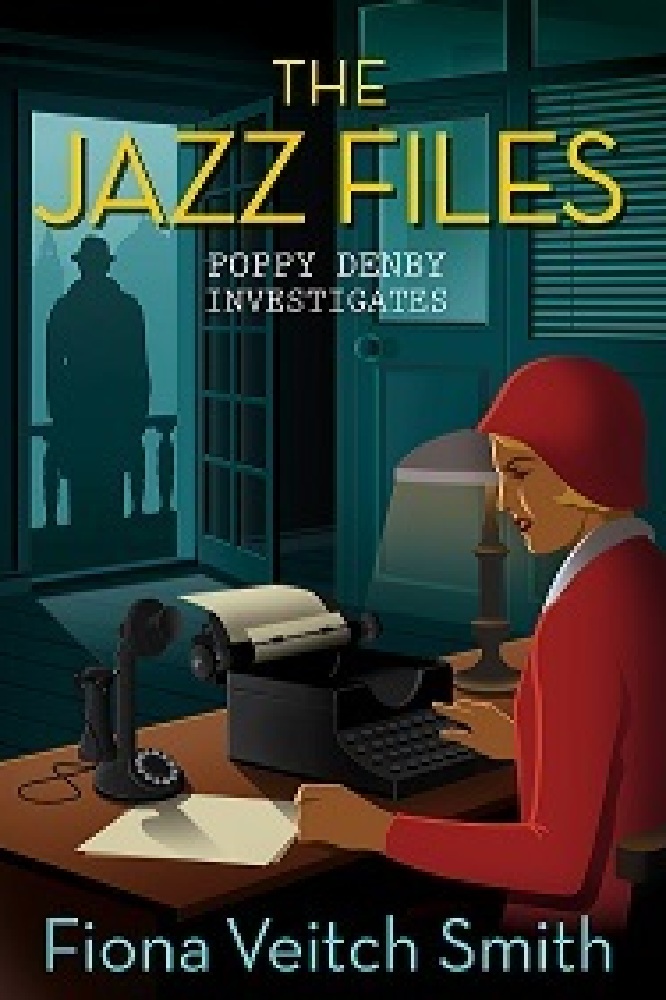The Jazz Files, the first in the Poppy Denby Investigates series, is about a young female reporter in 1920s London who investigates the mysterious death of a suffragette seven years before. You can view a video trailer for the book here [you might want to embed this on your website, here's the Youtube link] You can also read more about Poppy Denby, the music, the fashion, the history and the scandal on www.poppydenby.com

FIona Veitch Smith
The suffragettes were trained in jujitsu. Britain's first female martial arts instructor, Edith Garrud, trained thirty women - known as The Bodyguard - to defend fellow activists against attacks from the police, who were becoming increasingly violent in their handling of women campaigners. Edith was only 4ft11.
Not all women campaigning for women's suffrage were suffragettes. The National Union of Women's Suffrage was founded in 1897 by Millicent Fawcett. Its aim was to secure the vote for women by peaceful means. However, a number of women became disillusioned with the slow pace of change and encouraged more confrontational tactics. Among them was Emmeline Pankhurst, who founded the Women's Social and Political Union in 1905 - of which, in The Jazz Files, Aunt Dot and Grace Wilson are members. But even within the WSPU there were divisions between those in favour of militant action and those against.
There were male suffragists too. We would be wrong to think that it was only women who campaigned for the right of equal and universal suffrage. There were many men too. In The Jazz Files, Frank Wilson is a member of The Chelsea Six, a militant cell of the WSPU. In real life, Emmeline Pankhurst's husband Richard (a barrister who died in 1898) was just as vocal a campaigner as his wife.
The term suffragette was originally an insult. It was first used in an article in The Daily Mail in 1906 to mock the emergence of militant suffragists. But in a typical act of defiance, the women embraced the term and wore it as a badge of honour. Eventually the militant suffragists started their own newspaper and called it The Suffragette.
They considered themselves political prisoners. The infamous hunger strikes of the suffragettes came about because they wanted to be considered political prisoners and not held with the general 'criminal' prison population. However, the authorities refused to acknowledge the political dimension of their cause and authorised force-feeding.
Force feeding was done through a tube in the nose. Forget images of a drip in the arm or a pleasant chocolate flavoured glass of Complan, the hunger striking women had thick porridge and bread softened with milk pumped through a tube in the nose. Many women suffered ill-health as a result for the rest of their lives.
Emily Wilding Davison tried to commit suicide in prison. The infamous suffragette Emily Wilding Davison - who died after being trampled by the King's horse at the Epsom Derby in 1913 - had tried to commit suicide in Holloway prison in 1912. In order to bring attention to the plight of her fellow 'political prisoners' she jumped 30 feet from a staircase. Some wire netting broke her fall, but she suffered a spinal injury.
Emily's Epsom Derby scarf still exists. Although at the time it was reported that a mad woman had dared to disrupt the Derby - and she was seen more as an annoyance than a martyr - in recent years Emily's sacrifice has been recognised by parliament itself. The scarf is now on permanent display in the House of Commons.
Sylvia Pankhurst was a founding member of the Communist Party of Great Britain. Emmeline's daughter Sylvia broke away from the WSPU in 1914 and formed the more left-leaning Women's Suffrage Federation. In 1920 she hosted the first meeting of the Communist Party of Great Britain. Her sister Adela, on the other hand, in later life joined an anti-Communist coalition in Australia.
Not all women got the vote in 1918. The history of the battle for women's suffrage does not stop in 1918. It was only women over 30 - who also owned property - that got the vote after the war. It took the suffragists another 10 years to force through universal suffrage. The Jazz Files, set in 1920, has the continued fight for women's rights - after the suffragette heyday has come and gone - as its backdrop.


